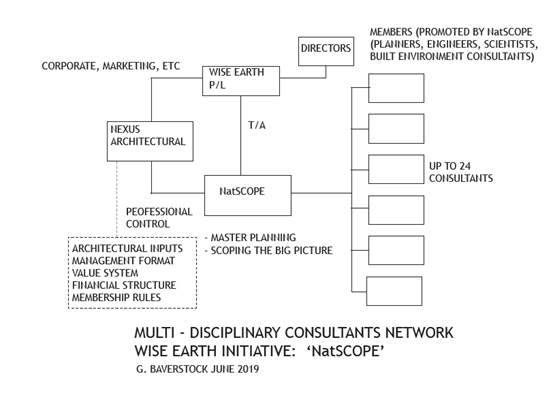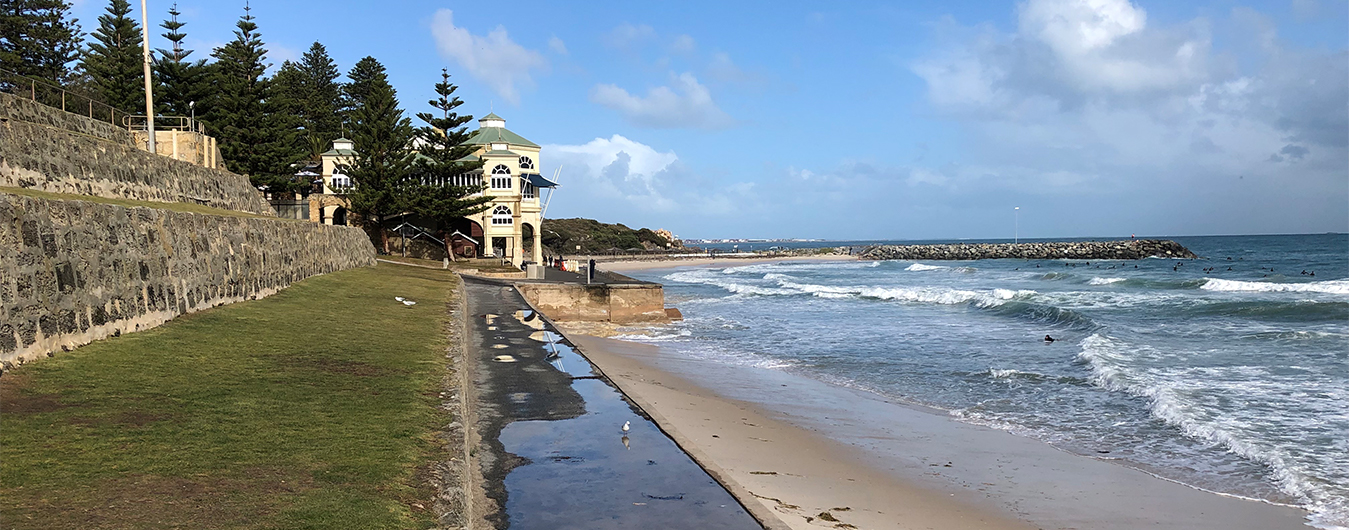What is the Function of NatSCOPE?
It is a multidisciplinary group/network of experienced built-form professionals designers and consultants who are committed to collaborate through “SCOPING”, in projects and competitions of the group’s choosing as part of commissioned work and sometimes to participate in public debate on issues that conform with and represent the views of SCOPE as a group.
The NatSCOPE Network identity is defined by its creative and constantly evolving search for a more positive and logical development approval system that is verifiable by proven scientific data, a creative process, serendipity and proper envisioning of the future.
This approach possibly offers the best outcome for the human family, all living beings and the planet fashioned to translate into future proofing and transforming our cities and towns.
Garry Baverstock of Ecotect-Architects after bouncing the idea around with Sasha Ivanovich of SIA (Founders of the idea for it to be corporately structured by Wise Earth PL), initiated this concept in 2018.
The Structure of NatSCOPE

Below is the professional framework for all participants and affiliate members that should be a progressive approach:
- To work on a collaborative basis to provide multi-disciplinary professional contributions to benefit the country, state and local precincts and deliver sustainable economic results from the planning of the built environment
- Create progressive responses to planning our future free from the negative lobbying of interest groups and those wishing to always resist change or present an unbalanced standpoint..
- Base all decision on state of the art information, scientifically, economically and socially, resulting in a victory for intergenerational benefits and equity.
- Create professional commissions for the selected team members from the network that will deliver a multi disciplinary, defendable result
- Always act in the best interest of society by providing contemporary solutions to emerging problems in the built environment at all levels.
- Deal with the establishing processes that deliver the networks identified targets and KPIs
- Make the public aware of measures needed that are solution focused compatible with all tiers of government through positive investigations.
- All evidence must be peer reviewed or stand up to mathematical and scientific analysis
- Solutions must be apolitical, non-sectarian and stand up to realistic life cycle analysis.
Summary of NatSCOPE TASKS, ETHICS & VALUES
Through its growing network of committed and experienced professionals, is the professional network is gathering and dissemination of useful, critical data on:
- Climate change
- Preservation of the natural environment
- Waste management
- Technical development and Innovation,
- Population growth
- Demographic trends to inform design for human habitations
- Shaping of cities using the sun paths as a guide.
Its creative and technical pool of professionals, “thinking globally but acting locally” on sound economic principles, plans offer new strategies as well as concept design and planning solutions, representative of the real economic issues facing Government at all levels and large corporates.
In so doing, the supportive and progressive form of advocacy for younger generations will help the context of a changing world that should support coming generations.
Policy Position
Discreet participation in public debate is a core activity along with various architectural and planning related institutes, to strengthen professional advocacy of good design, and ESD.
The outcomes should result in a more holistic multi-disciplinary approach to changing built environments.
Successful team bidding for environmentally responsive local, national and international projects, will demonstrate how a network approach to big picture visions can produce better outcomes.
Charter
- Link to civil society programs via Progress WA and the many associated bodies for positive change.
- Submit as a collaborative contractor for planning strategies to Local, State Government and Federal governments and the corporate world.
- Promote evidence based multi-disciplinary formulated answers that stack up to scrutiny.
- Promote the values as a group of professionals
- Align with existing programs and initiatives of the many institutes and associations concerned with the quality of the built environment.
- Assist where we can rather than protest and cause problems



